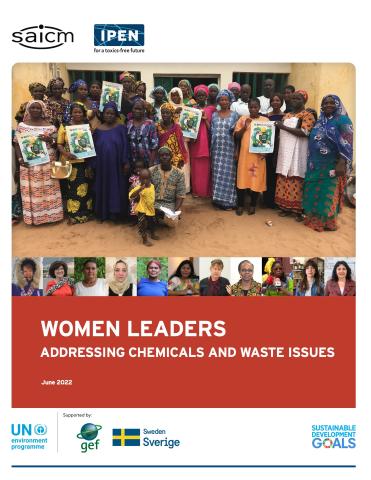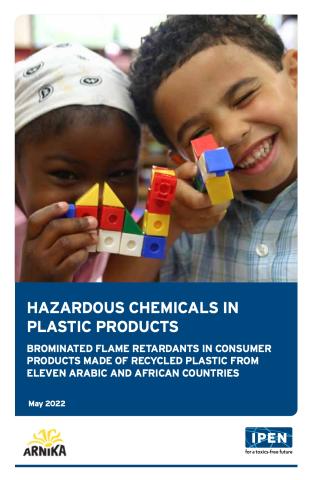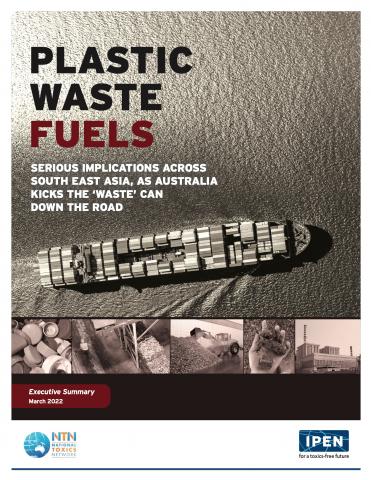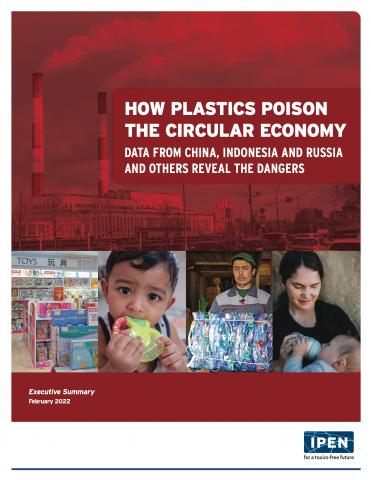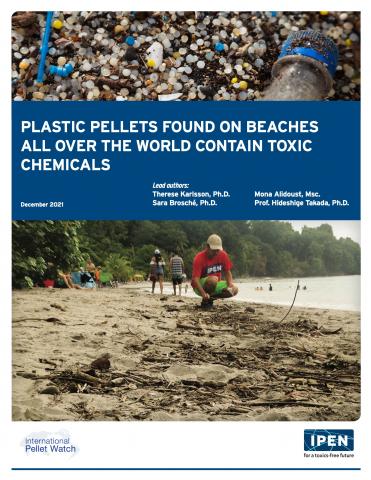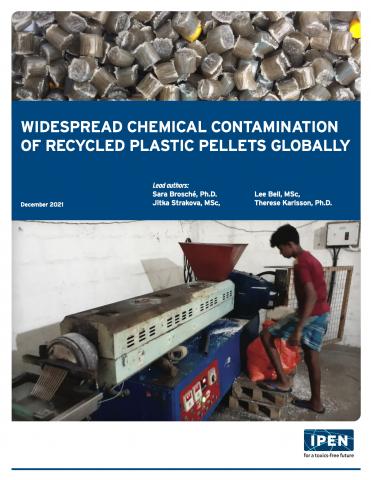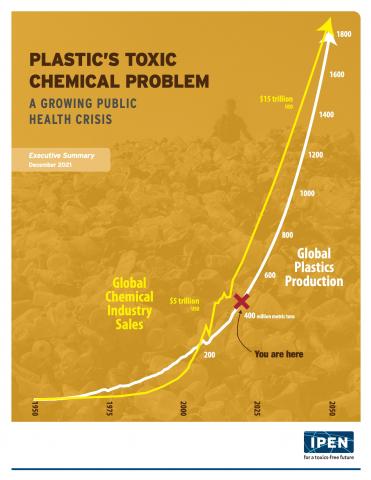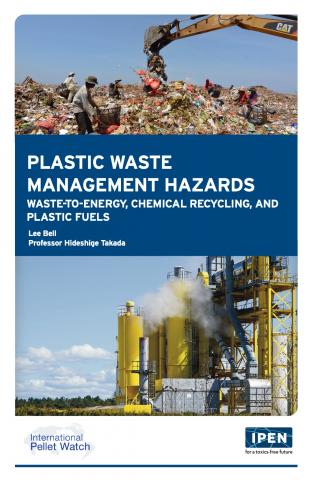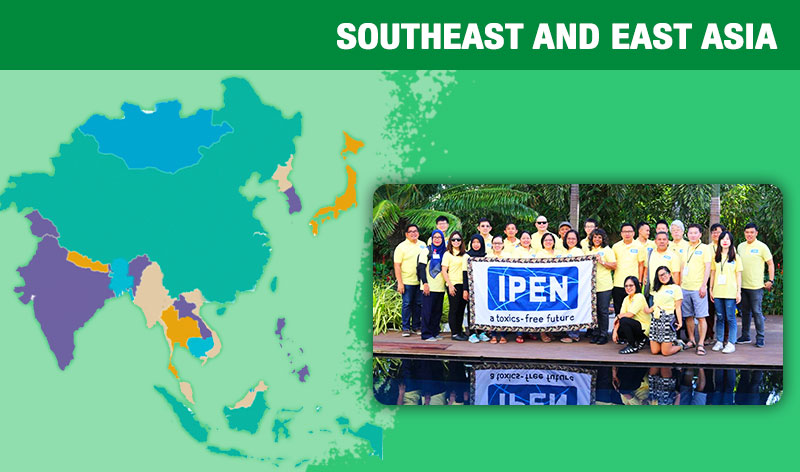
Top News

March is International Women's Month!
We salute all the women heroes for all your contributions to our work for a toxics-free future for all. We are grateful for your commitment, hard work, and unwavering spirit. May you continue to break barriers and thrive in everything you do. May your courage and determination continue to light the way, and together, we successfully leave a better and safer world for generations to come. Please check all the women's quote cards on the IPEN SEA social media page.
More News
Upcoming Events
- Plastics Treaty INC-4
21 – 30 April 2024
Location: Ottawa, Canada - Science-Policy Panel Open Ended Working Group
07 – 24 June
Location: Geneva, Switzerland - POPRC-20
23 – 27 September
Location: Rome, Italy - Plastics Treaty INC-5
25 November – 01 December
Location: Busan, Republic of Korea
Recent Reports
Cambodia: Ending the PBDE recycling exemption
China: Establishing a Pollutant Release and Transfer Register
Indonesia: PFOA situation reports in support of Stockholm Convention listing
Hong Kong (PRC): Survey of Habits of Using Face Masks during the COVID-19 Epidemic in Hong Kong
Malaysia: PFOA situation reports in support of Stockholm Convention listing
South Korea: Stories from the Clean Room (Screenings of the film have been shown in over 20 countries to date)
Thailand: PFOA situation reports in support of Stockholm Convention listing
Newest IPEN Reports
Women Leaders: Addressing Chemicals and Waste Issues
People of all gender identities must have the same rights and opportunities to participate fully in their communities, free from the health threats posed by toxic chemicals. It is especially important to understand the factors that put women at risk from chemical health threats.
Hazardous Chemicals in Plastic Products
Both the environment in Africa and the Arabic region and the human health of Africans and people from Arabic countries suffer from toxic chemicals and imported wastes, including illegal wastes, more than in developed countries.
This study shows that toxic chemicals are present in toys, kitchen utensils, and other consumer products purchased from African and Arabic region markets in Burkina Faso, Cameroon, Egypt, Ethiopia, Gabon, Jordan, Kenya, Morocco, Syria, Tanzania, and Tunisia.
Plastic Waste Fuels
IPEN studies show how policy is driving massive investment in plastic waste-to-fuel processing, and that exports are threatening waste management in ASEAN countries and undermining the Basel Convention and climate change commitments.
Plastic Poisons the Circular Economy
IPEN published a number of studies showing significant obstacles for countries seeking to implement safe plastic circular economies. The studies reveal that countries are unable to handle large volumes of diverse plastics waste streams safely, and the reality that, without regulations requiring plastic ingredients to be labeled, countries are blindly allowing known toxic chemicals onto their markets in plastic products.
Plastic pellets found on beaches all over the world contain toxic chemicals
Preproduction plastics as pellets, or "nurdles", can carry many different chemicals, both those added to the plastics and pollutants that attach (sorb) to them in the environment. Often lost during production, transportation, and storage, pellets have been found on beaches all over the world since the 1970s. This study of plastic pellets gathered from beaches in 23 different countries contained many chemicals of concern, some in very high concentrations.
Widespread chemical contamination of recycled plastic pellets globally
Because almost all plastics contain toxic chemicals, recycling processes can perserve and can even generate toxic chemicals, such as dioxins. In this study, pellets made from recycled HDPE, intended for use in new products, were purchased from 24 recyclers in 23 countries and analyzed for 18 substances. The large number of toxic chemicals in many of the samples highlights the need to rethink recycling to ensure it does not perpetuate harms.
Plastic’s Toxic Chemical Problem: A Growing public health crisis
This summary of our two plastic pellets reports encapsulate the broad issues related to toxic chemicals in plastics and the concerns with recycling processes that can perserve or generate toxic chemicals.
Plastic Waste Management Hazards
Plastic waste has become an unprecedented pollution issue, blanketing our planet in the petrochemical remnants of plastic production. This report examines current and emerging methods by which plastic waste is managed globally and questions whether any of them present a solution to the rapidly accelerating generation of plastic waste. In short, they don't and the only long-term answer is to produce less plastic.
Regional Hub
EcoWaste Coalition
Based in the Philippines
Regional Coordinator: Chinkie Peliño-Golle
Contact: seahub@ipen.org
EcoWaste Coalition is a public interest and advocacy network of more than 150 community, church, school, environmental and health groups. We envision a Zero Waste society in the Philippines by 2020 by pursuing sustainable solutions to waste, climate change and chemical issues facing the Philippines and the world. EcoWaste Coalition organizes and supports various citizens’ efforts addressing waste, climate and chemical safety issues through: research and evidence building approach; information dissemination; skill shares and workshops; policy development and advocacy; and demonstration projects of ecological alternatives and strategic campaigns and alliances, locally and internationally.
Get our Newsletter
Video Highlight




